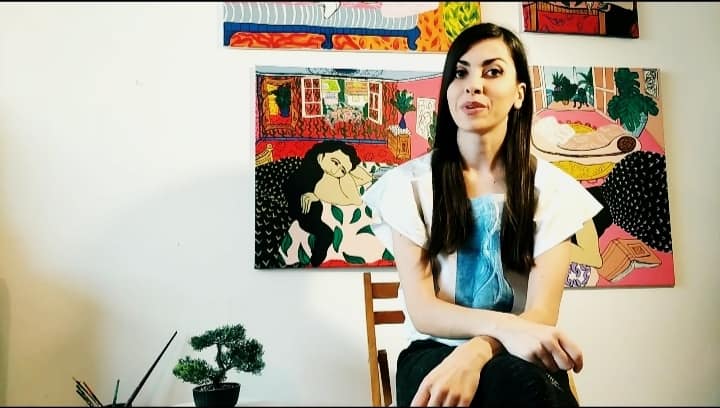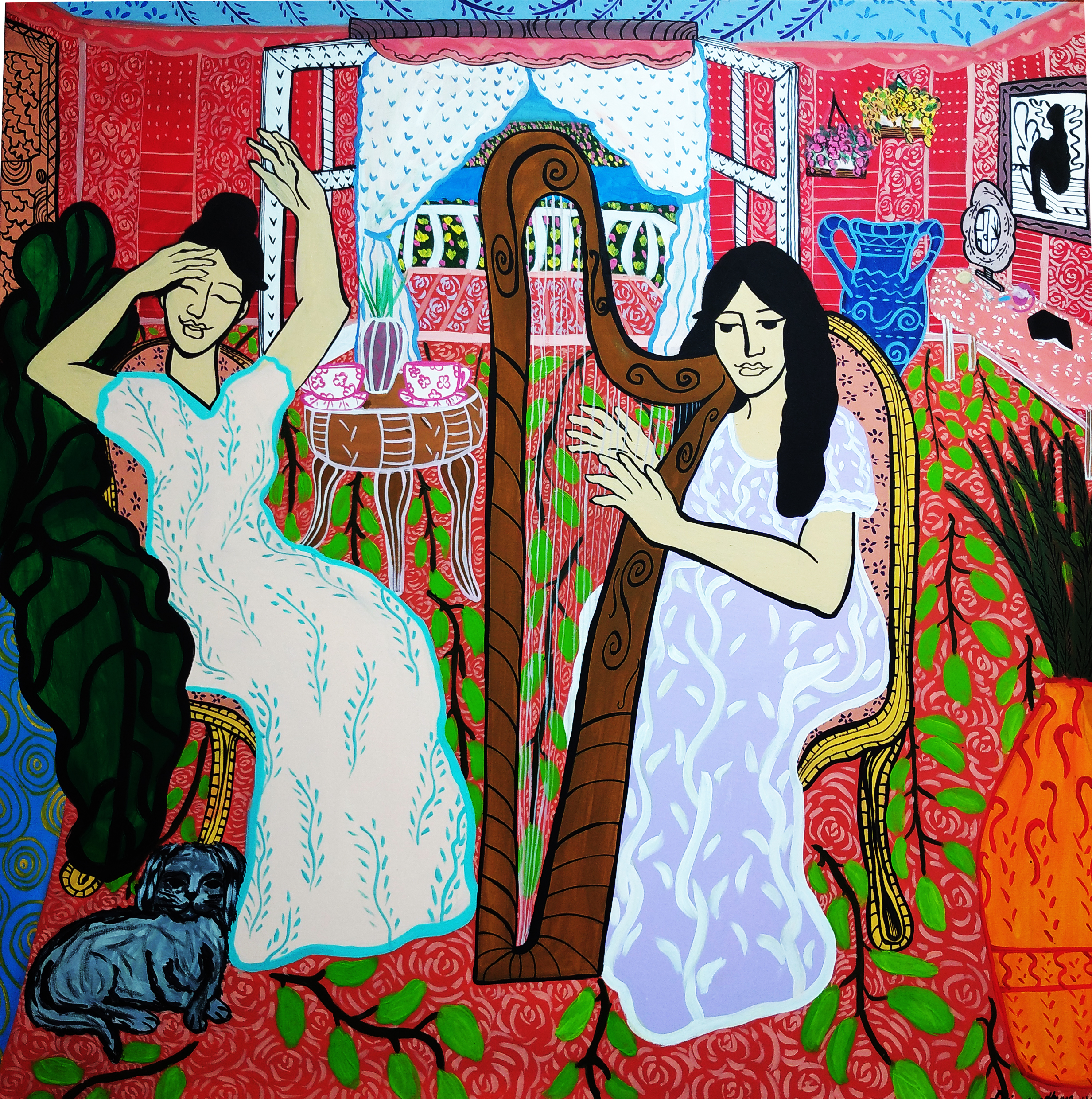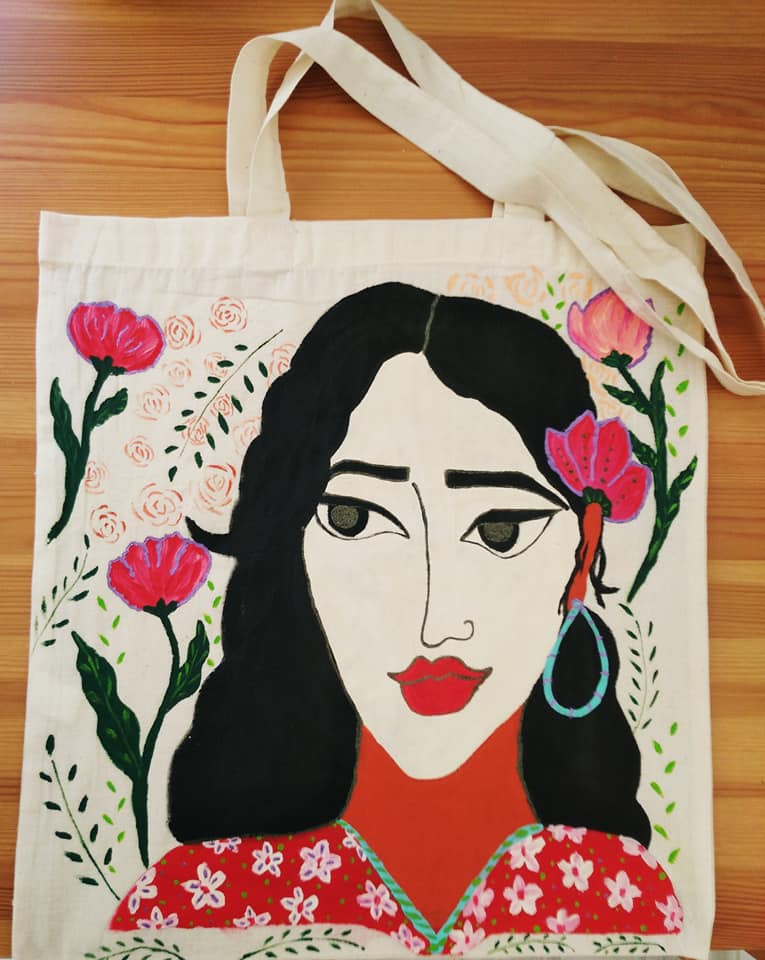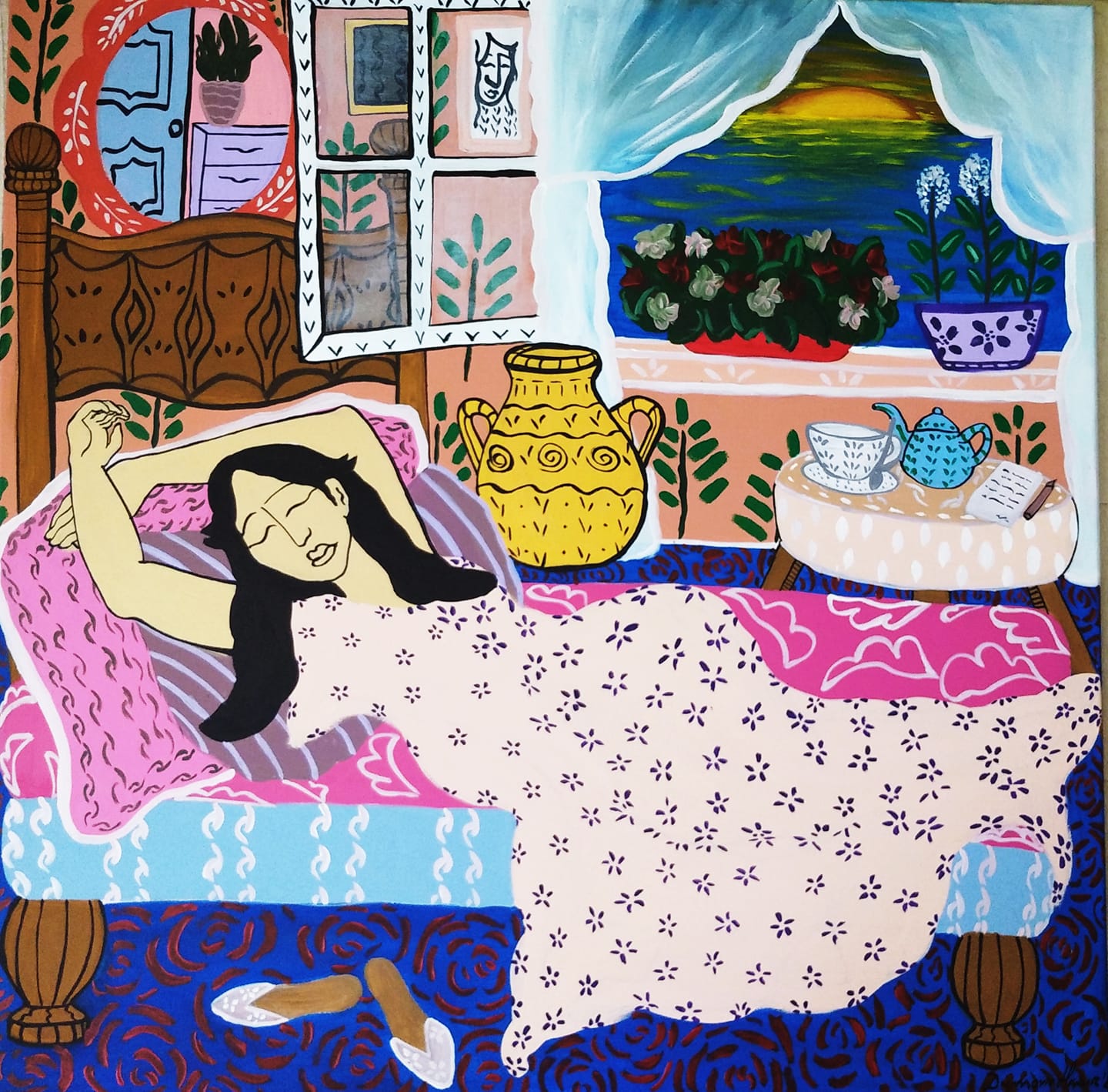
Hanna Dumović is an academic sculptor, who describes herself as an imaginative, ambitious and unusual girl who lives her dreams. Unlike many of her peers, Hanna did not wait for the change to happen on its own after graduation, but actively worked on achieving her goals.
She has been involved in many projects involving creative workshops with children and young people, and has already had nine collective exhibitions around the world. She is currently working as a rhythmic gymnastics coach, and in addition to that, she is the founder of the atelier for all ages “EdusKreativus”.
This unusual girl believes that formal education is not as important for the development of young people in Bosnian society as it is important to be educated informally during their studies. She says that formal education is something that new generations no longer question, because “it is now always expected from everyone to have a college degree.”
“What I consider very important, in addition to formal education, are our interests and hard work. It is very important to read, research and upgrade your knowledge every day, because they will not teach us many things in educational institutions”, says Hanna for Balkan Diskurs.
The young artist says that her greatest passions are nature, art and music, and her greatest motivation is to constantly improve and reach the maximum of her personality. She adds that she finds passion in everything she does and if it weren’t so, she probably wouldn’t be able to realize many of her projects.

With her colleague and friend, Merima Prija, during her student days, she had many productive conversations about what to do after graduation. She says that she and her colleague have always been ambitious, so after graduation they decided to turn the designed concept into reality and open a studio.
After a lot of work and effort, they managed to find a place to open a studio, which operates within the Youth Center Gorica.
“As part of the studio, we offer a unique creative program for all those who want to practice art. We also do preparatory classes for enrolment in the High School of Applied Arts, and the Academy of Fine Arts. This year, our first generation of preparatory classes was sent off, and all our candidates were admitted among the best in the entrance exam. I think that says enough about how seriously and lovingly we do this job,” adds Hanna.
What the studio also offers are Art Therapy workshops for adults which contribute to relaxation from stress and everyday life. At these workshops, Hanna and Merima do relaxation sessions with music, where participants can relax and forget about all the problems through the means of creative work.
Hanna says that these workshops have proven to be very successful for all participants, and that many people are happy to return to the studio. During the sessions, the tasks are always new and interesting, and the final product is generally better than expected.
Additionally, this young artist is involved in many other creative projects, one of which is painting reusable grocery bags.
In response to the growing global problem of using disposable plastic bags, Hana started painting cotton grocery bags, which can be found on the h.tzekeri page. These grocery bags look interesting and modern, and the goal, she says, is to contribute to the protection of the environment.
“Painting cotton grocery bags is an idea that my colleague Merima and I primarily started in our studio. I turned this idea into a humanitarian action, so I could buy gifts for beautiful children by selling of eco checkers, with whom we worked within the Public Institution “Mjedenica”. I am currently painting grocery bags upon customers’ orders. Reusable grocery bags are long-lasting, an ideal replacement for disposable bags, but also a unique fashion detail because you have a wearable work of art, which we certainly can’t see that often,” says Hanna.

What is very significant in Hanna’s work is the cycle of paintings “Art in the Age of the Corona”. She says that artists create in accordance with the times, and usually draw inspiration from everyday life. Her inspiration for this cycle arose in response to a pandemic that still afflicts us.
The paintings are divided into several cycles, and the first was the cycle “Art in the Age of the Corona” – melancholic, depressed, aggressive, as a search for a way out and coping with the situation. In response to the first, the “Spring Dance” was created – the discovery of positivism within the imagination, the painting of cheerful, funny, colorful motifs with the figure of a woman.

Although a large number of artists have been left without engagement since the beginning of the pandemic, Hanna says that if you are willing to invest effort in new content, then you will easily find new potential buyers.
She adds that regardless of the pandemic, the art market is open-end; paintings can travel anywhere in the world, and certainly the profit from that is enough to survive in these difficult times.
She says that the advantage of artists in Bosnia and Herzegovina is that there is almost no competition when it comes to authentic works, so that a lot can be achieved with hard work and effort.
“If we take a metropolis like London as an example, then it is very difficult for your works of art to be visible to the general public at all, because the rivalry is huge. Some artists never even welcome their exhibition, while in our country, whoever works and creates, has the opportunity to present themselves to the audience. I think the future of artists in Bosnia and Herzegovina is promising. A lot is being done to popularize art, I believe it will bear fruit”, Hanna is optimistic.
This young artist believes that every goal can be achieved with a lot of hard work, a lot of setbacks, a lot of optimism and ultimately with a little luck. She says that we cannot know until we try, and as very important factors for the development of each individual, she recommends reading, watching quality movies, listening to good music, traveling, and meeting people of other nations and cultures.
“That’s what we lack, expanded horizons, dialogue, empathy and a little more mutual love. Young people are the key drivers of positive change, but I certainly think it is necessary for all generations to unite towards the goal of a better tomorrow, because young people are just one part of the puzzle,” says Hanna.
Given the situation with the pandemic, this young artist tries to go day after day with minimal planning. She says that challenges and creative ideas are always present, and emphasizes that the right time for implementation of those ideas will happen soon.
Hanna’s upcoming exhibition will open in Belgrade this month.






